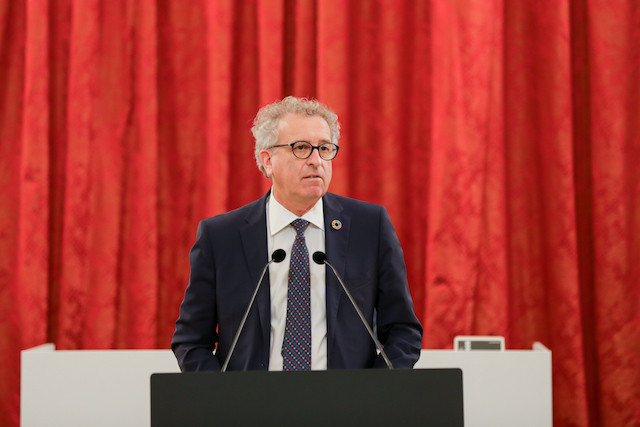Gramegna (DP) was speaking in parliament as lawmakers debated the national budget for 2021, set for a vote on 17 December.
“Luxembourg is more resilient than most of the EU member states,” he said. In its most recent economic forecast, national statistics office Statec anticipated the economy to shrink by between 3.5% and 4.5% this year. This was revised from a worst-case scenario of -12% estimated at the start of the pandemic.
For 2021, Statec expects a rebound of 4% at best or -0.5% stagnation in its worst-case forecast.
“It looks like the forecasts are getting better and that the government wasn’t too optimistic. Quite on the contrary,” Gramegna said. A budget watchdog had previously urged the government to base its 2021 budget not only on the 6% estimate but also the gloomier outlook.
Paired with the prospect of the coronavirus vaccine being approved for use in the EU soon, European leaders finally agreeing on a rescue deal and a change in the US administration on the horizon, Gramegna said: “We have more reasons today to be optimistic than to be pessimistic.”
Generous rescue package
Gramegna first presented the draft budget in October, saying Luxembourg would not enter a period of austerity but maintain high investments.
This remains the case; however, additional rescue measures prompted by a wave of coronavirus infections since November also mean a larger deficit than initially foreseen.
The measures--including direct aid for companies but also €16.5m for the health ministry to pay for the coronavirus vaccine--dent the budget by another €191m.
The budget deficit as a result will amount to €2.7bn in 2021, compared to €2.5bn estimated in October. Prior to the crisis, it was supposed to be €401m. “The crisis will have long-term consequences,” Gramegna said.
Luxembourg’s public debt is expected to grow 7.4% between 2019 and 2021 to reach 29.5% of GDP. This is the lowest increase in the EU and the second-lowest debt ratio among all EU countries.
The finance minister said Luxembourg’s rescue package was among the most generous in Europe, at 5.1% of GDP and €4,928 per capita. However, he did not break down how the rescue packages are constituted.
€2.5bn of the Luxembourg package, for example, are reserved to cover loan guarantees for companies. As of October, however, lenders paid out only €149.1m under the scheme.
Similarly, the government had set aside €300m in funding for repayable advances. But as of October, it had granted requests worth less than half of that sum at €136.3m.
50 suggestions
On Tuesday, member of parliament François Benoy of the Greens had presented his take on the 2021 budget to lawmakers as part of a three-day marathon to get the document to a vote. Benoy is this year’s budget rapporteur.
In his report, Benoy indicated 50 recommendations to the government to take into consideration for Luxembourg to emerge out of the crisis stronger.
These ranged from investments in the health sector, investing in green infrastructure and anticipating public transport needs of the next 15 years to raising taxes on buildable land that’s sitting empty, a fairer distribution of tax burdens, and fighting against poverty and exclusion.
“The state must continue to play a strong and proactive role over the next decades,” he said in his report. “It must work for a more resilient society by ensuring investments intended to prepare for the future.”
